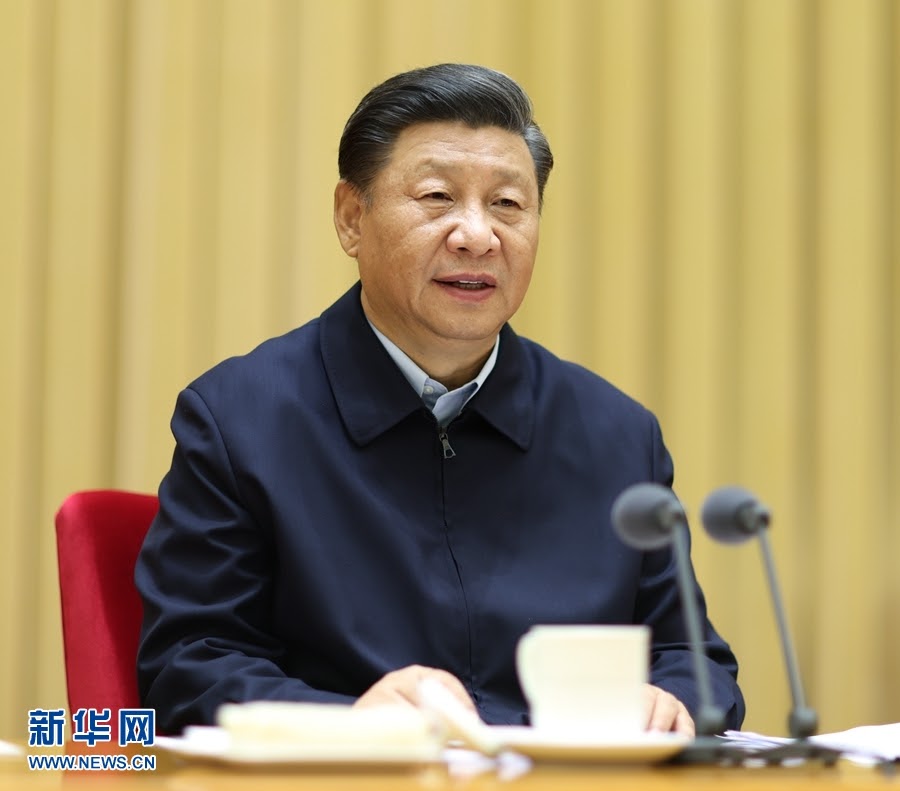China’s Xinjiang policy is ‘completely correct,’ Xi Jinping says
Despite international criticism, Chinese leader Xi Jinping has expressed his satisfaction with Xinjiang policy, and urged the continued “sinicization of Islam.”

Over the weekend, Chinese leader Xí Jìnpíng 习近平 publicly affirmed his support for the government’s policies in Xinjiang. According to a report in Xinhua (in English, or a more detailed Chinese version), Xi called the policy direction in the region “completely correct” and urged the continued “sinicization of Islam.”
- Xi made no reference to the well-documented existence of as many as 380 detention camps holding hundreds of thousands of primarily Uyghur citizens, nor of the clearly visible demolition of thousands of mosques and Uyghur shrines across the region.
- Perhaps his comments on those touchy subjects were off the record, or perhaps he felt no need to address them, as the foreign ministry already responded last week: A spokesperson claimed on September 24, “There was never any ‘detention camp’ in Xinjiang,” and said a day later that reports of mosque destruction were “nothing but slanderous rumors.”
Xi made his remarks with other top leaders in attendance, at a Xinjiang policy work conference in Beijing from September 25 to 26. Those other leaders included Premier Lǐ Kèqiáng 李克强 and Politburo Standing Committee member Wāng Yáng 汪洋, who is considered “liberal” on many economic and even political issues, but not on Xinjiang. Both leaders gave comments affirming their support for Xi’s vision for the Xinjiang region.
The report on Xi’s comments starts by noting economic achievements, though we would assume that these statistics exclude those in extralegal detention or formally incarcerated:
- “From 2014 to 2019, the per capita disposable income of residents in Xinjiang grew at an average annual rate of 9.1 percent.”
- “99.7% of residents are covered by basic medical insurance,” Xi said, and “the incidence of poverty dropped to 1.24 percent from 19.4 percent in 2014.”
- After noting economic statistics, Xi says, “On the whole, Xinjiang has shown a good situation of social stability and people living and working in peace and contentment…Facts have fully proved that our national work is successful.”
Then, Xi’s comments on policy direction:
- The “strategy for governing Xinjiang is completely correct” (治疆方略完全正确 zhì jiāng fāng lüè wánquán zhèngquè).
- Xi urges the Party to engage in education at multiple levels to “establish a correct view of the country, history, ethnic groups, culture, and religion,” to ensure that the “common consciousness of the Chinese nation takes root deep inside people’s hearts.”
- “It is important to persevere in sinicizing Islam in Xinjiang, and to bring about healthy religious development.”
The bottom line: Xi says the ends justify the means
Xi’s remarks indicate that the CCP is not contemplating softening its ethnic policy for Uyghurs and others, and considers assimilation by any means to be a worthwhile goal. China appears set to totally ignore international criticism, even as it grows and includes more explicit references to genocide.
The New York Times compared Xi’s new comments with similar ones that it had obtained from six years ago, and said that Xi “sounded less alarmed than he did in 2014, suggesting that his government feels it has a firmer grip on Xinjiang.”
As Xi expresses satisfaction with his control over Xinjiang, instead of softening policy for ethnic and religious minorities, Beijing is doubling down. See more:






